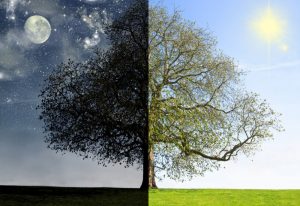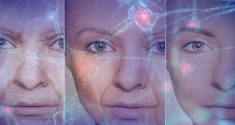It’s just a fact of life: Our bodies change as we grow older. According to new research, sleep patterns appear to be especially impacted by aging. Compared to younger generations, older people have more trouble falling asleep, more trouble staying asleep and are less able to adjust their circadian rhythms as needed. According to several new studies on sleep and aging, the changes that occur as we age and the circadian dysregulation that they cause may contribute to many common diseases of aging, making our elders even sicker.
How Your Body Regulates Your Circadian Rhythm
The sleep-wake cycle seems so simple at a glance: At night we feel sleepy and fall asleep; after roughly eight hours, the sun comes out and we awaken. Despite the seeming simplicity of this system, we have several major genes as well as an entire part of our brain dedicated to maintaining our internal clocks.
Our internal clocks are innate, with timing mechanisms built into every cell and every organ system. However, this does not mean that we keep the same schedule our entire lives. After all, we could never change time zones or even adapt to daylight saving time if this were the case.
Our bodies take cues from a variety of environmental factors — like light levels, temperature and whether we’ve eaten recently — and use these to determine where we should be in our schedule. Hormones such as melatonin and cortisol are then released to keep our internal clocks in line with the demands of our environments. Without this system, it is easy to see how one’s circadian rhythm could become permanently misaligned. According to new research, a loss of ability to retrain the circadian rhythm may be part of the reason that elderly people have so much trouble sleeping.
Sleep and Aging: Losing Your Reset Button
The suprachiasmatic nucleus (SCN) of your hypothalamus is the part of your brain that helps to align your internal clocks with external cues. One major cue, the presence of light, is reported to the cells of the suprachiasmatic nucleus using a type of glutamate receptor called an NMDA receptor. This receptor becomes less effective as we age, which means that our body loses some of its ability to adjust our circadian rhythm according to the presence of light. The loss of effectiveness appears to be related to an age-related decline in the expression of a critical subunit in the receptor.
Researchers looked at both young and aged mice that were exposed to high levels of light at times that were not aligned with their circadian rhythm. Although both groups had identical function in their pupils and other light-sensing organs, this information did not seem to make it to their suprachiasmatic nucleus. Upon examining the brains of these mice, researchers found the critical difference in receptors.
Without the ability to adjust their circadian rhythm, elderly people likely have internal clocks that become increasingly out of tune with their environment, leaving them increasingly sleep-deprived as they age. According to doctors, it can make a profound difference in both physical and emotional health.
What Happens When You Can’t Adjust Your Internal Clocks?
The lack of this crucial receptor may be part of the reason that about half of elderly adults report difficulty sleeping. Elderly people are more likely to have sleep issues such as frequent waking, insomnia and shorter periods of deep sleep. Many elderly people do not get the rest that they need to get through a full day, which is why napping and early bedtimes are common in this age group.
This in turn can have a huge impact on the health and wellness of our older population. Insomnia has been linked to increased depression as well as serious illnesses such as Alzheimer’s disease and Parkinson’s disease. In addition, a dysregulated circadian rhythm can put people at higher risk of diseases such as heart disease and diabetes, both of which are already too common in the elderly.
Getting the Sleep You Need at Any Age
Regardless of your age, there are several ways that you can help ensure that you get the sleep that you need. First, go to sleep and wake up at the same time every day. This is especially important as we age, when our brains may not be able to change our circadian rhythms with ease. Although naps and ever-earlier bedtimes can be tempting, they will only set your internal clocks even further off track.
Second, reduce light exposure in the hours before sleep. Darkness is a potent cue to our brains that it is time to sleep. Although elderly people have fewer NMDA receptors, they still have a small amount of them. It is important to give your brain consistent cues so it can adjust your internal clocks to the best of its ability.
Aging can be a difficult process. However, we are constantly discovering new ways to keep ourselves even healthier and happier as we grow old. Keeping a regulated circadian rhythm is essential to thriving throughout our life cycle.









